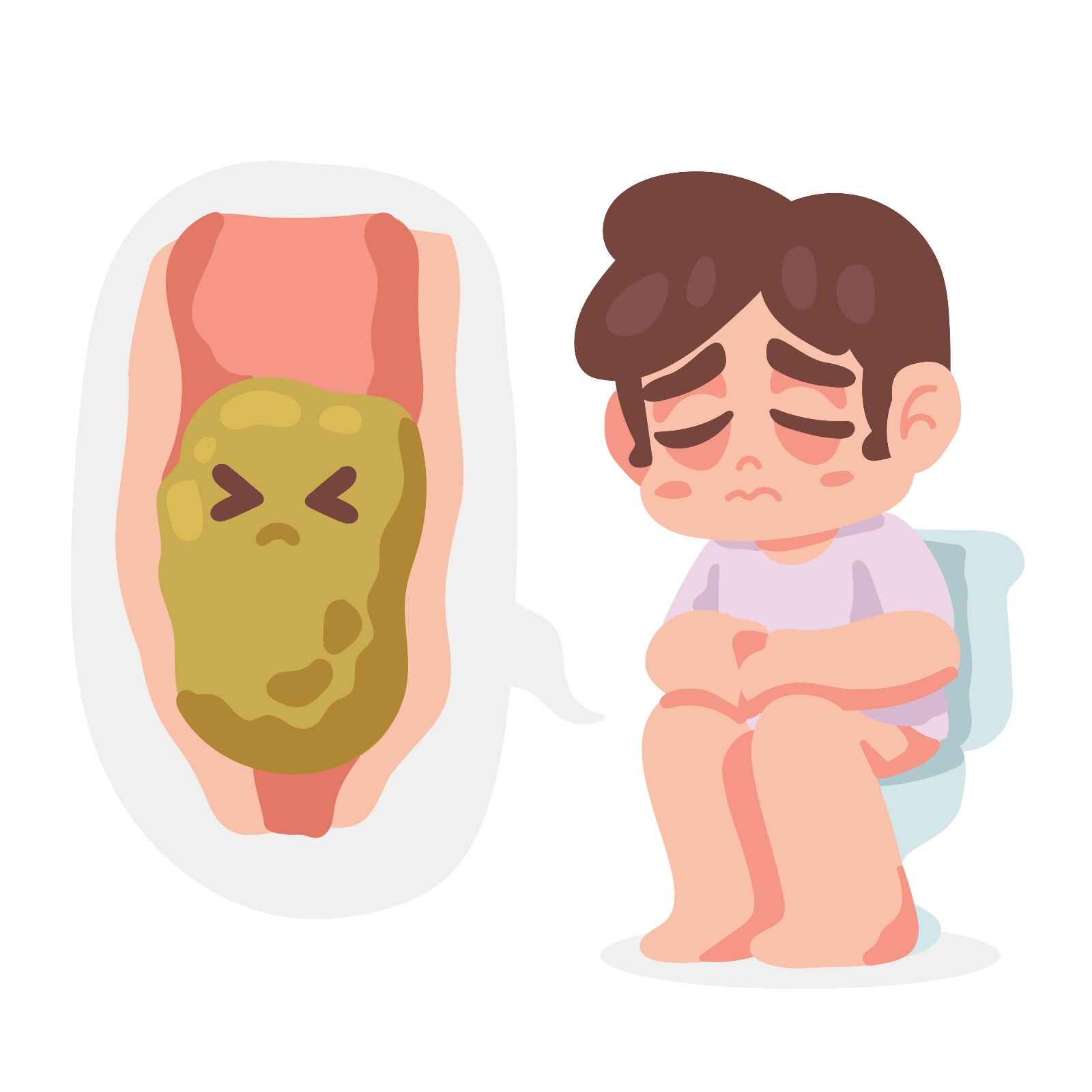Constipation:
Causes, Symptoms, & When to contact a Doctor

Constipation refers to a condition where you experience difficulty in having regular bowel movements, typically manifesting as infrequent or hard and dry stools. If you find yourself having fewer than three bowel movements per week, and the stool remains in your colon for an extended period, becoming hard and dry, you may be dealing with constipation.
Constipation may also present as pain during bowel movements, abdominal discomfort or cramps, and a sensation of incomplete evacuation after using the bathroom.
In severe cases, constipation can lead to the need for excessive straining during bowel movements, and in some instances, there may be leakage of loose stool around the harder fecal matter.
- You have infrequent or hard and dry stools.
- You have fewer than three bowel movements per week.
- You experience symptoms like pain during bowel movements, abdominal discomfort, and a sensation of incomplete evacuation.
- In severe cases, you may expoerience excessive straining during bowel movements and watery diarrhea around harder stool.

Constipation can arise from various factors, and it's crucial to understand the potential triggers. In this section, we will have a closer look at the different causes of constipation. Understanding the root causes is essential in tailoring an effective approach for relief.
Common causes include inadequate fluid intake, a diet low in fiber, lack of physical activity, genetic predisposition, stress, and delaying bowel movements. Pregnancy, certain medications, and conditions like irritable bowel syndrome or a slow thyroid can also contribute to constipation. See below for more details.
- A diet low in fiber: characterized by insufficient consumption of whole grains, vegetables, fruits, legumes, and nuts, can contribute to constipation.
- Inadequate fluid intake: a common cause of constipation. Dehydration can lead to harder and drier stools, making them more difficult to pass. Maintaining proper hydration is vital for digestive health.
- Physical Inactivity: lack of regular physical activity can contribute to sluggish bowel movements. Incorporating at least 30 minutes of daily exercise, such as walking or swimming, promotes bowel regularity.
- Genetic Factors: some individuals may have a genetic predisposition to less efficient bowel function. Understanding one's genetic background can provide insights into potential risks.
- Psychological Factors: stress and anxiety can impact digestive health, potentially leading to constipation. Incorporating stress-reducing practices, such as mindfulness or relaxation techniques, may be beneficial.
- Medications: certain medications, such as opioids, antidepressants, and iron supplements, can contribute to constipation as a side effect. Discussing medication-related concerns with a healthcare provider is essential.
- Underlying medical conditions medical conditions, such as irritable bowel syndrome, hypothyroidism, diabetes, and neurological disorders like Parkinson's or multiple sclerosis, can influence bowel function.

Addressing constipation often begins with simple yet effective home remedies. Start by ensuring you consume an adequate amount of fluids, with an emphasis on water, tea, and coffee without sugar.
Adopting a diet rich in fiber, including whole grains, vegetables, fruits, legumes, and nuts, can significantly improve bowel regularity. Engaging in at least 30 minutes of physical activity daily, such as walking or swimming, can stimulate bowel movements.
For immediate relief, consider the use of probiotics, natural fibers like psyllium seed or sterculia gum, or over-the-counter medications like lactulose or macrogol. These options can help soften the stool and promote smoother bowel movements.
When to contact a healthcare professional
If home remedies have been attempted for two weeks without improvement, or if you're considering medications for constipation, consult with MIA to get personalized advice or contact your healthcare provider.
When to call emergency services
It's crucial to know when to seek emergency services. If you experience on of the following signs or symptoms (see below), please contact your healthcare provider for further examination.
- Persistent rectal bleeding observed alongside constipation
- Nausea and Vomiting: severe constipation can (partially) block your intestines causing nausea and vomiting
- Significant weight loss / no appetite: severe constipation can negatively impact your appetite and cause you to lose weight
- Severe abdominal pain (during bowelmomvements)
- Fever and / or feeling sick (general malaise)
- Diarrhea alongside constipation